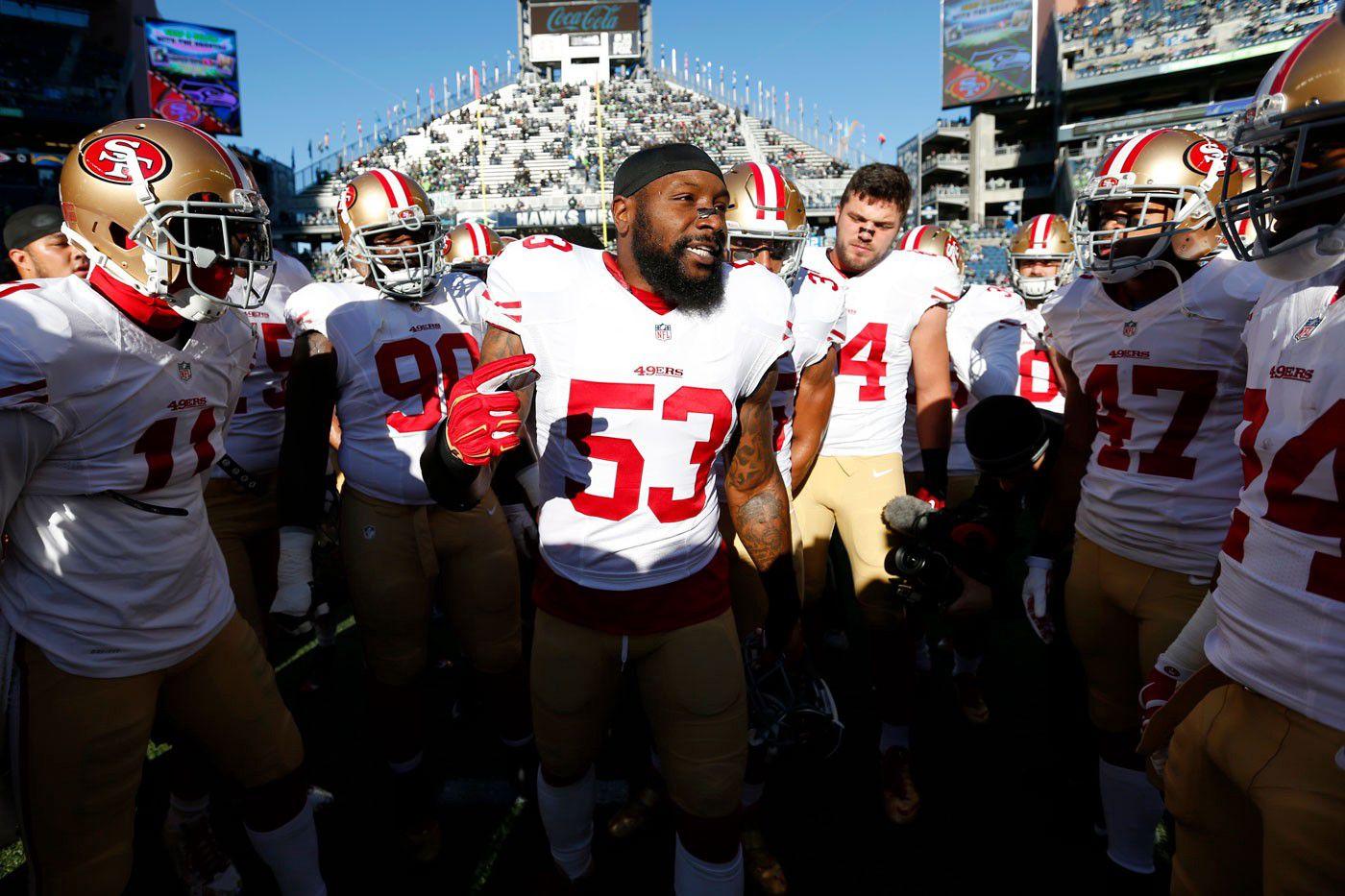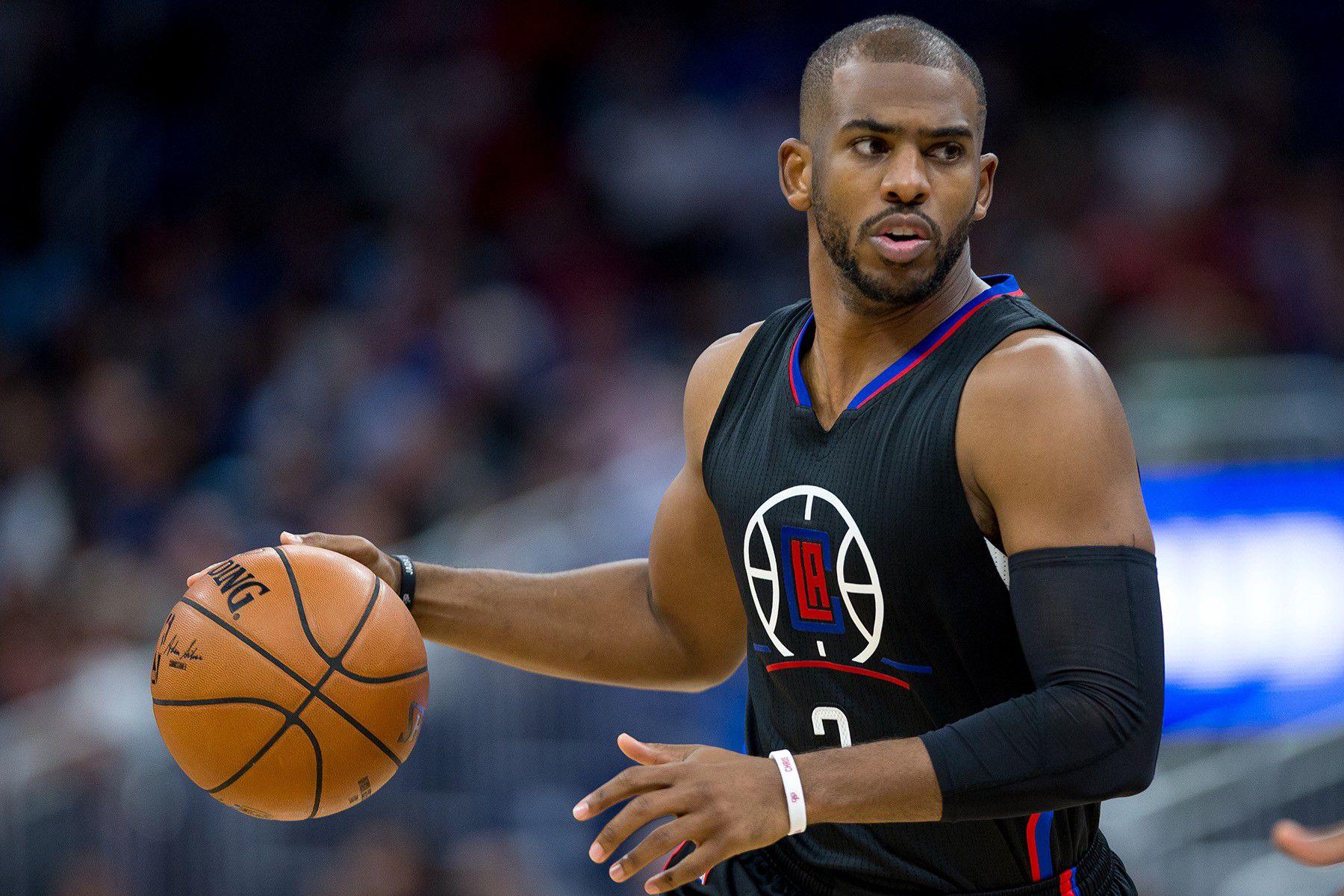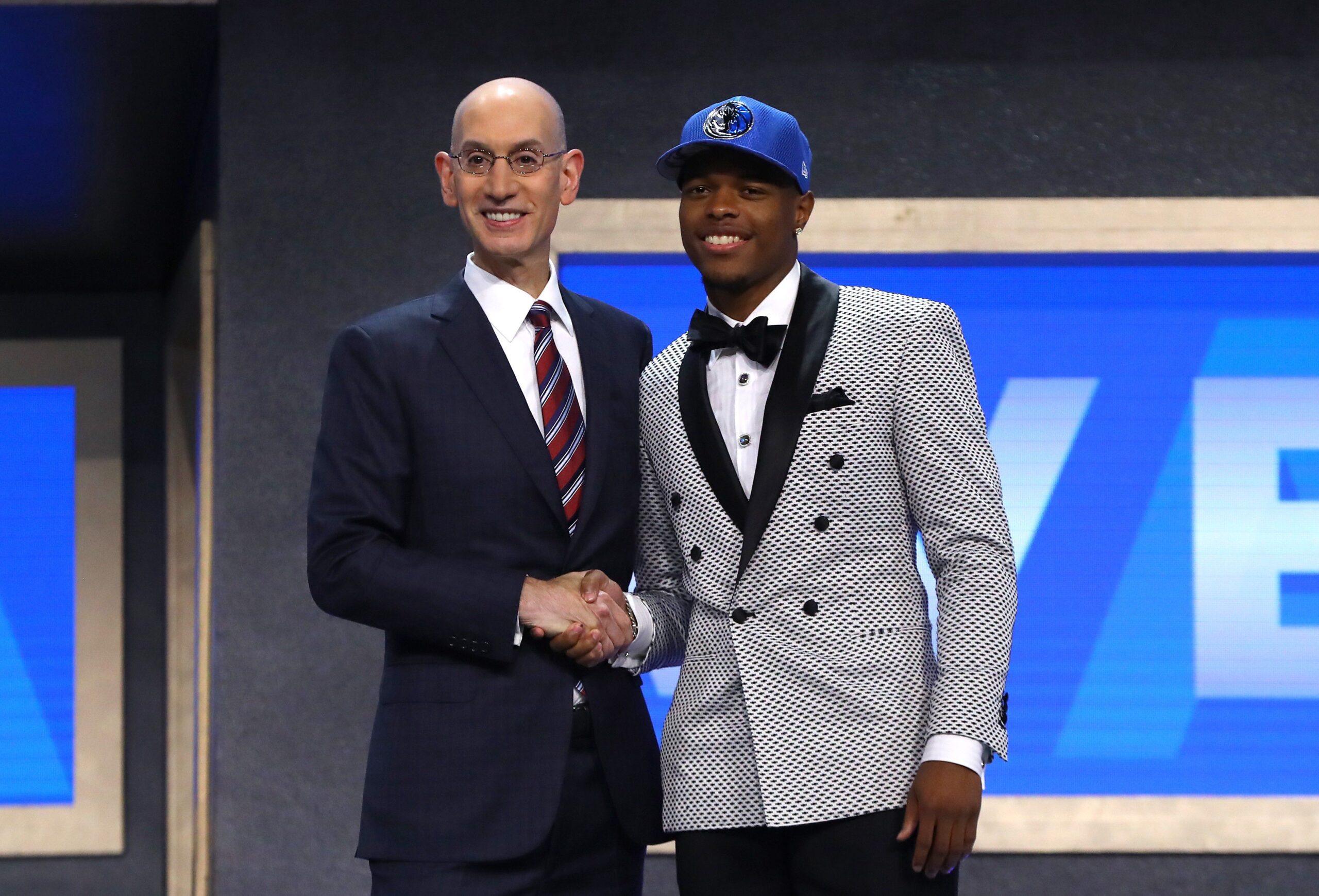Steve Ballmer is in his third season as the Clippers owner. The team is better than the Lakers for once and has just seven years left on its Staples Center lease. Where will it go from here? Ballmer joined The Bill Simmons Podcast to share his ideas on that, as well as his thoughts on the future of the NBA as a whole, including new ticketing models, software that could revolutionize the home-viewing experience, and how revenue sharing may need some tweaks. As he’ll tell you, not all of these will come to fruition. But they’re all being kicked around. Below is a portion of his conversation.
Listen to the full podcast here. This transcript has been edited and condensed.
Ballmer Wants You to See the Game From Chris Paul’s Perspective
Bill Simmons: What’s the best idea that you’ve heard in [the NBA’s owner meetings] that the league couldn’t actually do?
Steve Ballmer: There’s an idea that I’m very excited about which we will do with the Clippers. And yet it will be hard for us to realize its full potential without the league picking it up. I am excited about what you can do with software over the internet to transform the experience for a fan who is not in the arena. Whether they are on their phone [or] they’re in their home, can you, through software-based techniques, change it so that you see the game from Chris Paul’s perspective? Instead of a center-court camera; I want to see the game the way Chris Paul sees the game. Software can actually let that happen.
Simmons: So, Chris Paul would have to wear a helmet camera?
Ballmer: No! Nothing! Software can figure it out. If we can’t figure it out this year, we can figure it out in two to three years. So yes, I’ll exaggerate how quickly it can happen. But it’s going to happen.
And you say, "OK, but you’ve got to have the rights." We can do that here or we can do that in partnership with [local affiliate Fox Sports Net Prime Ticket], because we’ve been talking about it. But when the big contracts were signed with TNT and ABC/ESPN, that wasn’t part of the mix. The league did the right thing, Disney did the right thing, Turner — everybody did the right thing. And yet, I’m still hoping that if we can prove out this technology we can get it adopted, because there are games that we don’t have the rights to even for the Clippers. There are games that are exclusive. And even for those games, even if we get the stuff figured out with Fox, we’re not going to have the chance to bring that to people. Nobody did a wrong thing, everybody did everything right, and yet, there’s still so much to figure out with digital. And other owners have other concepts they’re playing with, this 3-D thing that Intel does —
Simmons: VR.
Ballmer: VR. There’s going to be a lot of things. The question is: How do you spin that together? Every owner’s got good ideas. The league understands the importance of the rights that have been granted. But solving all that, that’ll be a thing that will require a lot of creativity, and could have a little bit of frustration, despite everybody being interested in the right thing happening.
Streaming Games Is the Future
Simmons: You dabbled with the idea of doing a WWE Network–type of thing with Clippers games. It seems like you’re still investigating it. What’s the biggest obstacle?
Ballmer: Well, look. You can just stream games, who cares? You get [the Fox Sport GO app] today and get our games streamed, that’s not really the issue.
Simmons: But disappearing from cable and forcing people to be like, "You can only see our games by downloading this app or paying for this subscription" is different.
Ballmer: But then you’re just substituting one business model for another. The key to me is getting some innovation going. Just streaming our games, which you can do on Fox Sports GO — and the business model is well established — probably is not value added. When you can let people, instead of just watching the game, when you can let them do the kind of stuff I said earlier: "I’m going to watch the game today, just the first half and see it like Chris Paul. I’m going to watch the second half and see it like Blake Griffin." Or, "I’m going to watch this game where I can choose my camera angle, I can have any seat in the building, I can get instantaneous …"
Simmons: Can sit next to you!
Ballmer: Can sit next to me. You can get instantaneous …

Simmons: You’ll hear a lot of grunting and screaming.
Ballmer: Yeah.
Simmons: [Yells.]
Ballmer: [Laughs.]
Simmons: I’ve seen you during the games. How much soda do you have before a game, like 80 ounces?
Ballmer: I don’t drink any caffeine.
Simmons: No caffeine? It’s natural caffeine?
Ballmer: Zero. Zero.
Simmons: Amazing!
Ballmer: I got off caffeine two years ago.
Simmons: That’s probably a good idea.
Ballmer Has a Radical Proposal to Drive Away Opposing Teams’ Fans
Simmons: One thing that I’ve noticed the last couple of years — and it’s totally because of the secondary [ticket] market — there’s a lot of fans of the other team [in the stands]. There’s really no way to stop it because you know season tickets are expensive and nobody goes to 41 games anymore. I think that’s the thing that’s changed the most about being a sports fan over the last 20 years: People now go to 10 to 15 [games] and they sell their tickets and you see it with the Warriors and you see it with the Cavs. And it’s not just the Clippers, but I know you’re a competitive guy, I know you’re like a "this is your team" kind of guy. When you see those 7,000 fans of the other team you must go crazy.
Ballmer: Oh, it just drives me nuts. It really drives me nuts; it’s among the things that actually make me craziest.
Simmons: I figured.
Ballmer: There was a guy two or three seats down from me wearing a flipping blue and gold, blue and yellow, whatever the hell I’m supposed to say …
Simmons: The Warriors colors.
Ballmer: Oh yeah, you knew who it was and I couldn’t even speak the words but it’s like, "What the heck?" I went to the guys who owned the seats and said, "Please don’t ever do that again. Please. What are you thinking?" So it does drive me crazy. I mean look, there are ideas on how to do this differently.
Simmons: Let’s talk about them.
Ballmer: OK. And I’m not saying we’re gonna do them, I’d just tell you if you look at what they do in soccer in Europe, to the best of my understanding, you first have to join the club then you buy your seat.
Simmons: What do you mean join the club?
Ballmer: You’re part of the football club. They’re all called football clubs; they’re clubs — you’ve got to pay a club membership and then buy a ticket. And you know you can join the club and not buy season tickets, but when you want tickets you can get them and you can come to the game because you can show you’re a member of the club. If you had to do both of those the front-runners who only come to see their visiting team, they’d have to buy a club membership. That might scare them off a little for coming into our building.
I’m not sure we’re gonna do it. Not saying anything, but I’m looking and thinking this stuff through, particularly if we’re going to do a new arena. In the current arena, there wouldn’t be any way to do it — the ticketing systems wouldn’t support it. But we’re studying what they do abroad and whether there are any clever ideas from other places that would let you pull something like that off.
Simmons: So you could study music, too. Like Pearl Jam created a club and their members get first chance at tickets and things like that.
Ballmer: Well, you can even say you can’t come in the arena unless you can [show] you both bought a ticket and you’re a member of the club. You have to have done both, and guess what — how many Warrior fans living in L.A. are gonna want to join the Clipper club first? You can’t come unless you join the club and you buy your ticket, even if you buy it on the secondary market you’d still have to prove you’re a member of the club. Now, I don’t want to scare people off. This is a fantasy in my mind. Our season-ticket holders are just fine.

Simmons: I don’t think it’s that much of a fantasy, I think it’s doable.
Ballmer: Well, right now it’s fantasy because we couldn’t even execute it and we’d have to decide how much it would screw up ticket revenue. Because, as you said, people buy season tickets and they come in with an expectation that they can sell off games they don’t want.
Simmons: I like this. Like I hate … personal seat licenses. I just think it’s extortion. But what you’re describing is actually getting stuff out of it.
Ballmer: I don’t know if this all works, but we’re studying a little bit of what they do with these football clubs in Europe. You see mostly loyal fans in soccer games in Europe. In the U.S., football’s a little different because there’s only 16 games — people don’t put their tickets up as much, etc. So it’s a little different in football. Basketball and baseball, those are the two tough ones. A lot of games.
Simmons: That’s an interesting idea to study what’s actually working with fan unanimity.
Balmer: We’ll study and see if there’s ideas.
And If That Doesn’t Work, He Has Other Ticketing Ideas
Simmons: What do you think the future of season tickets is? I’ve had [L.A. Kings tickets] for six years and the last couple years because my kids have gotten older sometimes, last second it’s like, "Oh crap, we can’t go." We used to just put them on Stubhub or give them away or something like that. But now it seems like the people who buy secondary-market tickets wait because they know there’s this late rush of 4, 5, 6 o’ clock people who can’t go and they can get in for half price. What does that mean for the future of tickets?
Ballmer: Well, I think the best way for me to say it is: Technology gives us unique opportunities. We’re testing this thing this year we call Seat Bid where we save some seats that people can put up [in] an auction-type marketplace. And that means for some games you’re gonna make a whole lot more money, and some games we will make a whole lot less money. If the concept works over time, what you’d want to do is have a controlled marketplace that might go to an auction-bid system.
Today, tickets go everywhere — the Warriors have come down kinda hard on this. They basically say, "If you don’t sell your tickets back to us and let us sell them we cannot guarantee that you didn’t buy a counterfeit ticket so you better watch out." Now they tried [for] a period [to] ban it. You could only resell your tickets, I think, back through the Warriors. It’s a reasonable thing to do. You know Apple doesn’t let you buy an iPhone wherever you want to buy them, you buy them at the AT&T or Verizon store or you buy them in the Apple Store or the Best Buy store. They don’t let somebody go into Best Buy, buy a bunch, and then sell them out of the back of their closet. But that’s kinda what we do with season tickets these days.
Simmons: My friend Nathan Hubbard, who used to run Ticketmaster and Live Nation and then went to Twitter and is still heavily involved in the whole ticket side — he doesn’t understand why sports tickets don’t work the same way an airplane [ticket does]. Or why there’s not more of a trail of who has the ticket. Should this be a more complicated system for reasons of security or for reasons of the team? Once they sell a ticket it just goes out into the wilderness and they don’t know what happens to it. What else could we do?
Ballmer: I think some of the ideas that your buddy talks about are very interesting. I think you would — I don’t know, I’m making everything up I’m about to say here — but you think back to the old days, there was no technology to let you do this and there are a ton of baseball games and you just walked through the ballpark. There were always open seats and it was a little more like a movie theater. If we were sitting here and you say, "Let’s do this at the movie theater," we’d all say, "Oh, come on, that’s a crazy idea. Why do we need to track and monitor [that]?" And sports tickets are some place between a movie theater and an airline ticket, and getting that balance right is one of the things that the owners of the league are gonna have to think through for the future.
Is It Time for the Clippers to Build Their Own Arena?
Simmons: You don’t have to confirm or deny any of this, but I’ve heard rumors about you looking on the West Side for an arena, [or] you’re maybe gonna be involved with the [Stan] Kroenke thing in Inglewood. What is the ideal size of an NBA arena for you if you were building one from scratch? Did you study the Sacramento one? Have you looked at that? Because I think that’s the best one anyone’s built so far.
Ballmer: There’s multiple ways to think about an arena.
Simmons: OK.
Ballmer: Location’s obviously important. You can think about amenities and luxury — amenities for the fans, luxury areas that you can sell at a premium price; the more money you make, the more money you have to reinvest back into business.
Simmons: Yeah.
Ballmer: So, that’s all good. You can think about sort of comfort and socialization during the game, but you can also think about that hardcore fan experience where you want it bumping and thumping. I think Sacramento, I haven’t visited, but I think it has a lot of open-bar, stand-around space which is gonna give you a different basketball-watching experience than you would get — I’ll use Golden State as an example, or Portland — everything’s tight, boom boom boom. It’s pulsing, and it’s partly because you don’t have a lot of these sit-around, chatty areas. It’s about the basketball.
We want to make sure we have enough space for somebody to buy an affordable ticket, and I think everybody’s got to acknowledge that a small percentage of people will pay the lion’s share of the revenue of people coming into the building, so we want to get a good balance of intimacy [and] enough affordable tickets. If you take a look at Staples, we’re at about what, 19,400 seats?
Simmons: Yes.

Ballmer: It’s a very large physical space for 19,400 seats.
Simmons: I think it’s too big. For basketball.
Ballmer: I think it’s very tough for basketball. I mean, we and the Lakers do it and it’s a beautiful building. And it doesn’t mean we’ll move, because it is a beautiful building. [But] if you’re trying to create that intimate basketball pump-and-thump feel … it’s hard to do certain things, so you don’t want to be huge. You could have a lot smaller 19,000-seat arena than you have today. Or you could say 18,000 and still get plenty of affordable seats.
Simmons: Or you could go 14,000; you could goose the supply and demand and make it impossible to get in, make it like the hottest ticket in town and then you have less parking, you have less crowd coming in and out.
Ballmer: Then what you’d wind up [with] is very little in the way of affordability, which would be important to me. I also think there are league rules on minimum sizes of arenas and that kind of thing.
The Clips Could Become the NBA Version of the Rams
Simmons: Now [Rams owner Stan Kroenke] is going to own the second-biggest [NFL] team in the league, from a market standpoint. He has a monopoly in the city. Everybody has to basically go through him to play there. There’s [the Chargers] — they’re still a tenant, much like you all are now. And he’s going to have Super Bowls, he’s the epicenter of the NFL, stuff like that. Why couldn’t an arena that you built be the NBA version of that?
Ballmer: Could be, I guess.
Simmons: Could be the West Coast epicenter if you did it.
Ballmer: Yeah, could be. The most important thing right now is for us to take a look, think about the new arena and see what AEG really wants to do with Staples.
Simmons: When’s your lease end?
Ballmer: 2024. This is not minute by minute. But if you really want to build an arena, there’s a permitting process; you’ve got to get the land, we don’t have that. You’ve got to go through a permitting process; you’ve got to go through a real serious negotiation with the current landlords. It’s not a casual thing to say, "Hey, let’s go build a billion-dollar building." So you could say seven years out is early, you could say seven years out is about right.
Revenue Sharing May Need Some Revision
Simmons: Does it tick you off that the revenue sharing is really good? It wasn’t always, but it’s been good lately. Compared to what it was in the past, you have a team like Philly that can just be like, "We’re going to pay as little in salary as we can, we’re going to stink every year and we’re going to get a top-five pick. But, Steve Ballmer, knock yourself out, keep paying the $110 million a year — we’ll be happy to share some of that revenue with you and we’re going to cherry pick the next superstar." I don’t know if that’s a great system.
Ballmer: Well, it is and it isn’t. I actually think it is a good system, as long as it doesn’t go too far. Let me explain why.
Simmons: I would say that went too far. What Philly is doing has gone too far.
Ballmer: What Philly is doing is almost independent of revenue sharing — what they are purported to have done. [Sixers principal owner] Josh Harris is my partner. I don’t know what really happened.
Simmons: Josh Harris is smart. He gamed the system.
Ballmer: I have his back. But it’s almost independent of revenue sharing. It has more to do with the cap and the way all that stuff works. Let’s say the Lakers sign a $200 million per year deal. The players are entitled to $100 million of that. The cap is going to go up. The cap is going to go up by $3 million a year. That essentially added $3 million of cost to Memphis. Memphis didn’t get any of that revenue. The Lakers got all of that revenue, and all of a sudden the Memphis guys got $3 million more in cost and no more revenue. Some sharing to help with that is completely appropriate to some level. You go beyond that level, and it’s not appropriate.
You can’t take the pressure off of Memphis to do a good job because the L.A. Lakers got a huge TV contract. So some amount of revenue sharing is appropriate, and when you go beyond a certain point, you’re just encouraging lazy behaviors in certain markets. So getting that balance right, you don’t want to tell a guy, "Hey, good news: You don’t have to sell your tickets, you don’t have to have a winning team, because you’re going to get paid from the big markets." That would be wrong. And I think that is a place where there is balance, it’s a place where the owners can get a little uncomfortable with one another. It’s a place where Adam [Silver] and the league office have really tried to keep that thing in the right balance.
